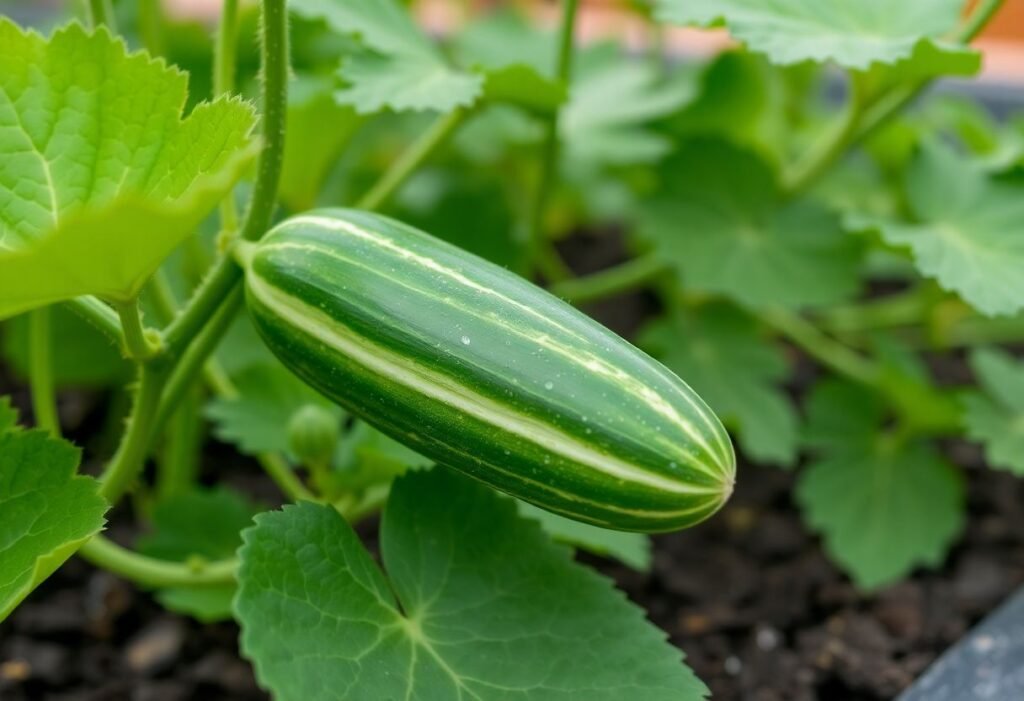Types of Fertilizers for Cucumbers
Cucumbers require a balanced mix of nutrients to thrive and produce delicious fruits. A balanced organic fertilizer, such as compost, is an excellent choice. It contains natural ingredients that deliver vital minerals. Additionally, mineral fertilizers like potassium and phosphorus are crucial for root and fruit development. When selecting fertilizers, it’s imperative to pay attention to the balance of nutrients to avoid deficiencies or excesses.
Soil Type and Preparation
Proper soil preparation is key when fertilizing cucumber plants. The soil should be well-draining and rich in organic matter. Be sure to till the soil before planting cucumbers to enrich it with organic fertilizers. This preparation ensures that your plants have enough resources for optimal growth.
Timing of Fertilization for Cucumbers
Begin fertilizing right at planting time. Adding fresh compost provides essential minerals to the plants. After that, consider using a liquid fertilizer every few weeks to maintain soil quality. It’s critical to fertilize after flowering to support fruit formation. Remember, maintaining moderation in fertilization is your ticket to success.
Preparing Fertilizer Solutions
When preparing a fertilizer solution, always follow the manufacturer’s instructions. Typically, diluting the fertilizer with water is necessary to avoid harming the plants. A good practice is also to apply the fertilizer around the base of the plants, promoting better nutrient absorption.
Impact of Soil pH Regulation
Maintaining proper pH is essential for healthy cucumber growth. Cucumbers prefer a slightly acidic to neutral pH. Keeping the soil pH within this range allows plants to absorb nutrients effectively. Regular soil testing helps make necessary adjustments in fertilization.
Monitoring Plant Health
Effective fertilization involves closely monitoring the growth of your cucumber plants for signs of nutrient deficiencies. Pay attention to the signals from your plants; yellowing leaves might indicate a nitrogen deficiency, while wilting or delayed fruiting could stem from insufficient potassium.
Conclusion
Utilizing the right fertilization techniques for cucumbers is imperative for their healthy growth and fruitful production. By considering the type of fertilizers, timing, and soil pH, you can significantly improve your harvest’s quality. Regularly monitor your plants to tailor the fertilization according to their needs. With just a little care, you can enjoy fantastic cucumbers straight from your garden!
Disclaimer
The information presented in this article is general and does not substitute professional gardening advice.

















